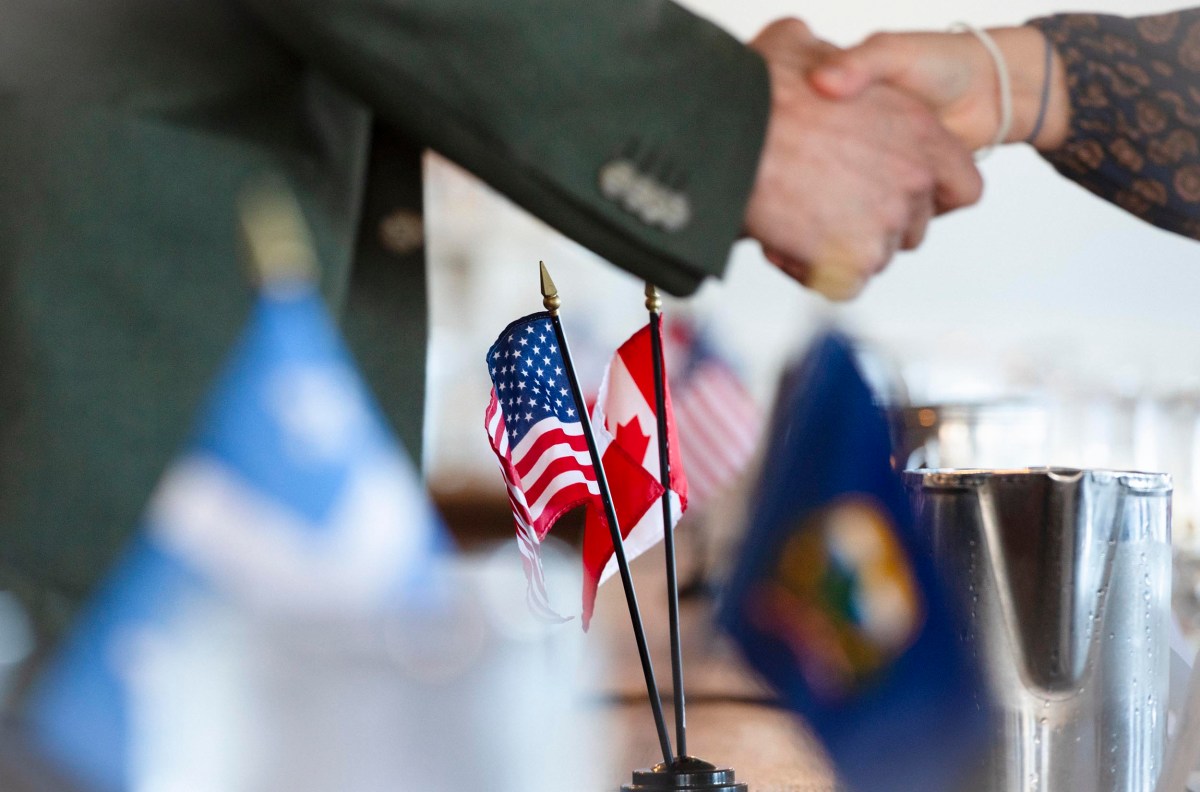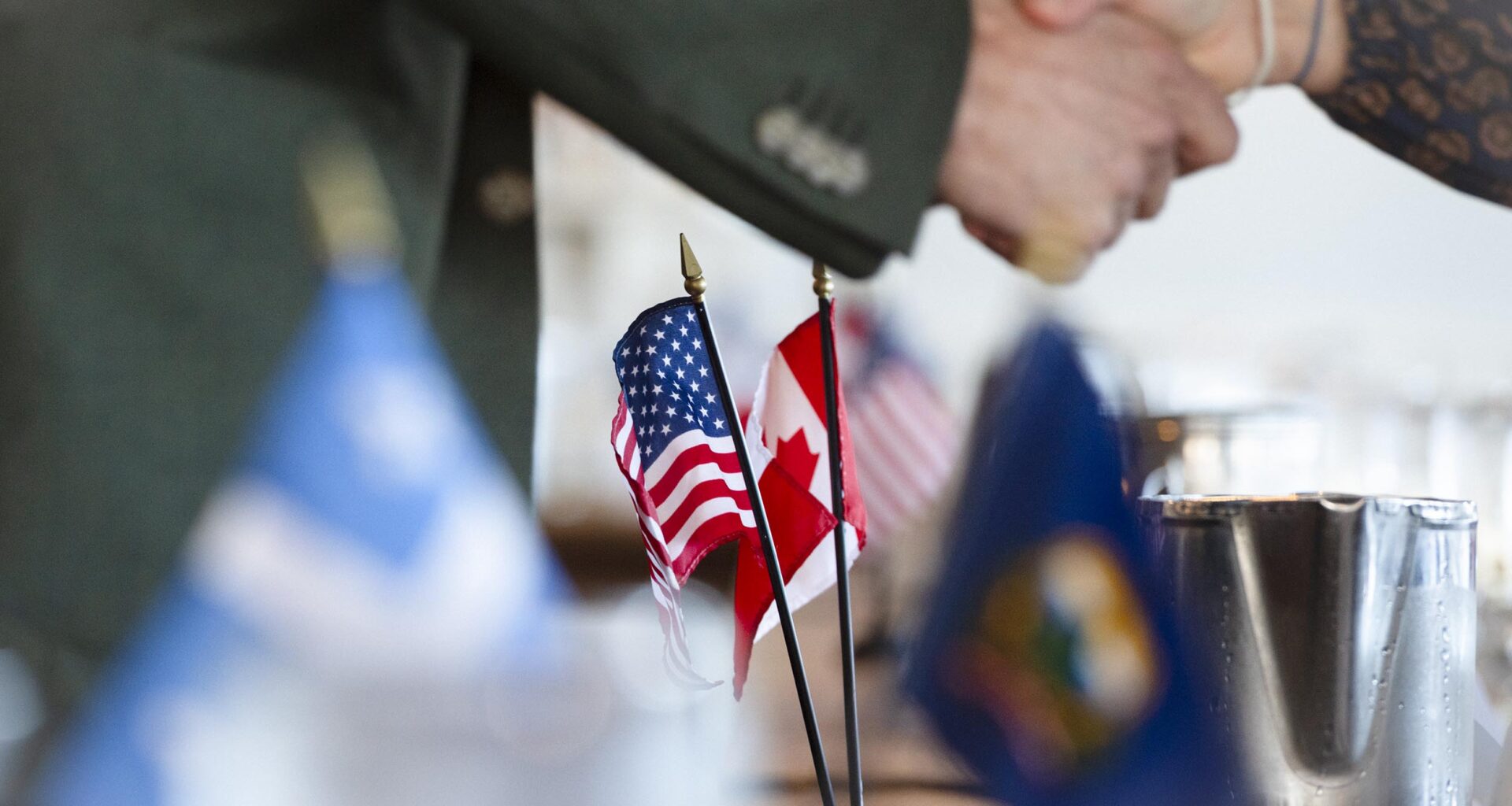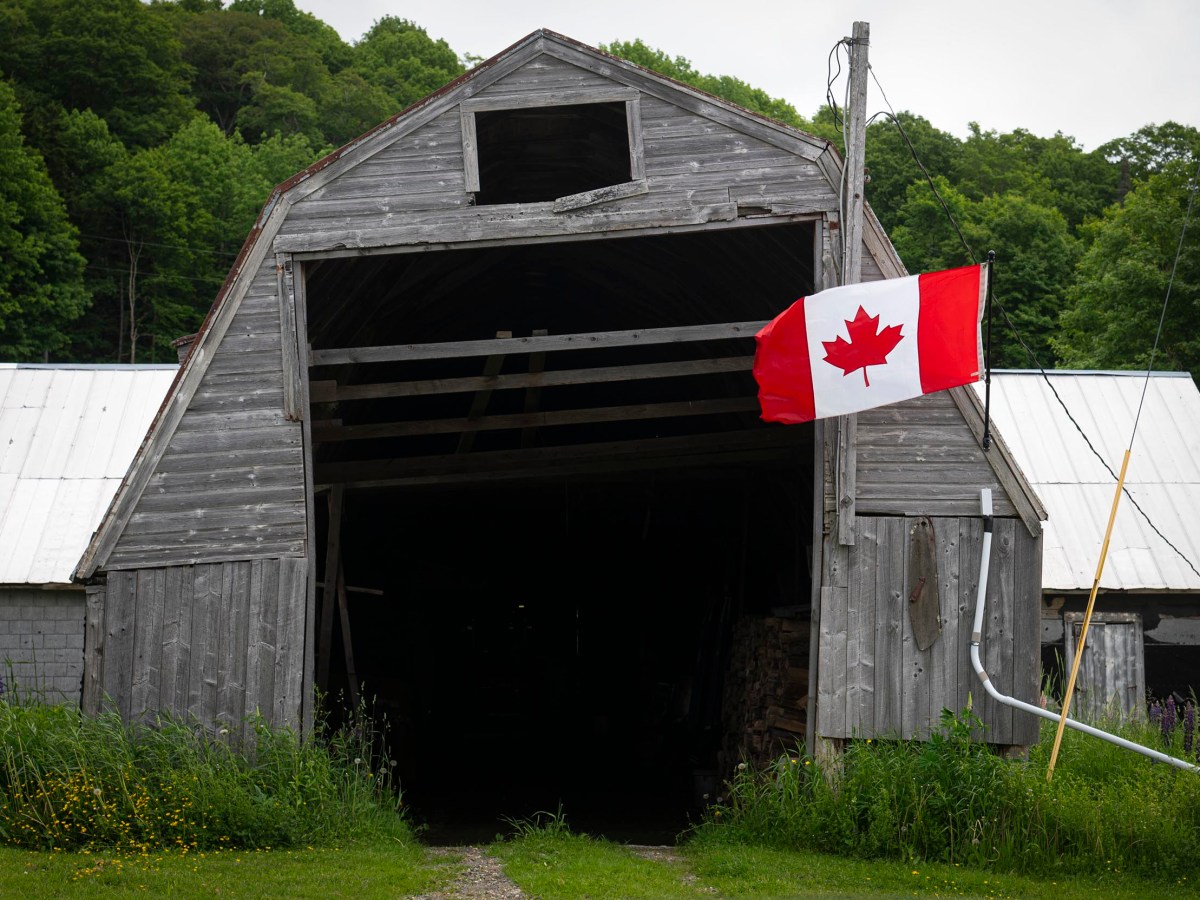 Attendees shake hands before the start of a roundtable discussion on the possible effects of tariffs and a trade war between the U.S. and Canada in Newport on March 18. Photo by Glenn Russell/VTDigger
Attendees shake hands before the start of a roundtable discussion on the possible effects of tariffs and a trade war between the U.S. and Canada in Newport on March 18. Photo by Glenn Russell/VTDigger
President Donald Trump’s sweeping new tariffs on countries across the globe took effect this week — a move experts have said will further disrupt trading patterns and increase prices for U.S. consumers on goods from clothes to food to appliances.
The impacts are somewhat complicated for goods imported to the U.S. from Canada, which data shows is by far Vermont’s largest trading partner. Here’s the latest:
Canadian imports to the U.S. now face, broadly, a 35% duty. That’s an increase from the 25% tariffs that had been in effect since March. (The new rate for Canadian goods took effect Aug. 1, while revised duties on other countries took effect Thursday.)
Trump increased levies on Canadian imports after failing to reach an updated trade agreement with the country’s leaders by the start of August. The president has tied the tariffs, in part, to what he maintains is Canada’s failure to reduce the cross-border flow of illicit drugs into the U.S. — though Canadian leaders have disputed that claim.
It’s not clear when a deal between the two countries might be reached.
The latest tariffs have a critical exception, though: the 35% duties don’t apply to goods covered by an existing deal called the United States-Mexico-Canada Agreement, which Trump signed in 2018, during his first term. That agreement allows many products to be traded duty-free if they largely originate from within North America.
Vermont State Treasurer Mike Pieciak said between 85% and 90% of Canadian exports likely fall under that agreement. Meanwhile, he said, all of the energy that Vermont imports from Canada appears to also be covered by the agreement.
The latter is particularly important since Vermont gets about a quarter of its electricity from Hydro-Quebec, based in the province of the same name, while about a third of the fuel used to heat homes and businesses in the state comes from Canadian dealers.
The tariff situation is further complicated by the fact some products have been facing separate levies for months, Pieciak said. Imports of Canadian steel and aluminum have faced 50% tariffs since June, he said, and aren’t exempted under the 2018 deal.
Meanwhile, 25% tariffs on foreign imports of automobiles and auto parts have been in effect since earlier this year, though there are certain exemptions to those levies.
Pieciak said the tariffs on metals have already affected some businesses in Vermont this summer. He recalled conversations with housing and business developers who are concerned that future projects could be plagued by higher material costs.
“A lot of the projects that are up and running had to source their steel well before they started construction. And they largely have missed the recent imposition of the tariffs,” he said. “But I do worry about what it means for projects that are on the drawing board — projects that will come to fruition in the months and years ahead.”
Trump’s tariffs on foreign-made cars have not yet been reflected in the prices consumers see at dealerships around Vermont, said Matt Cota, who represents auto dealers in the state. That’s because there is often a long gap between when a new car leaves a factory and when someone buys it at a dealership, he said.
But “unless things change,” Cota said, higher vehicle prices are on the horizon.
Pieciak also noted Vermonters can still expect new expenses in the coming months, across the board, due to Trump’s tariffs. The Yale Budget Lab estimated this week that some of the sharpest immediate impacts will be to apparel costs — with near-term price increases expected at 39% for shoes and 37% for clothing.
Gov. Phil Scott, a Republican, said at a press conference Thursday that the new slate of tariffs would only further strain the U.S.-Canada relationship. He predicted further detrimental effects on tourism in Vermont as a result.
“I think it’s going to be a while before they start trusting us again,” Scott said.

